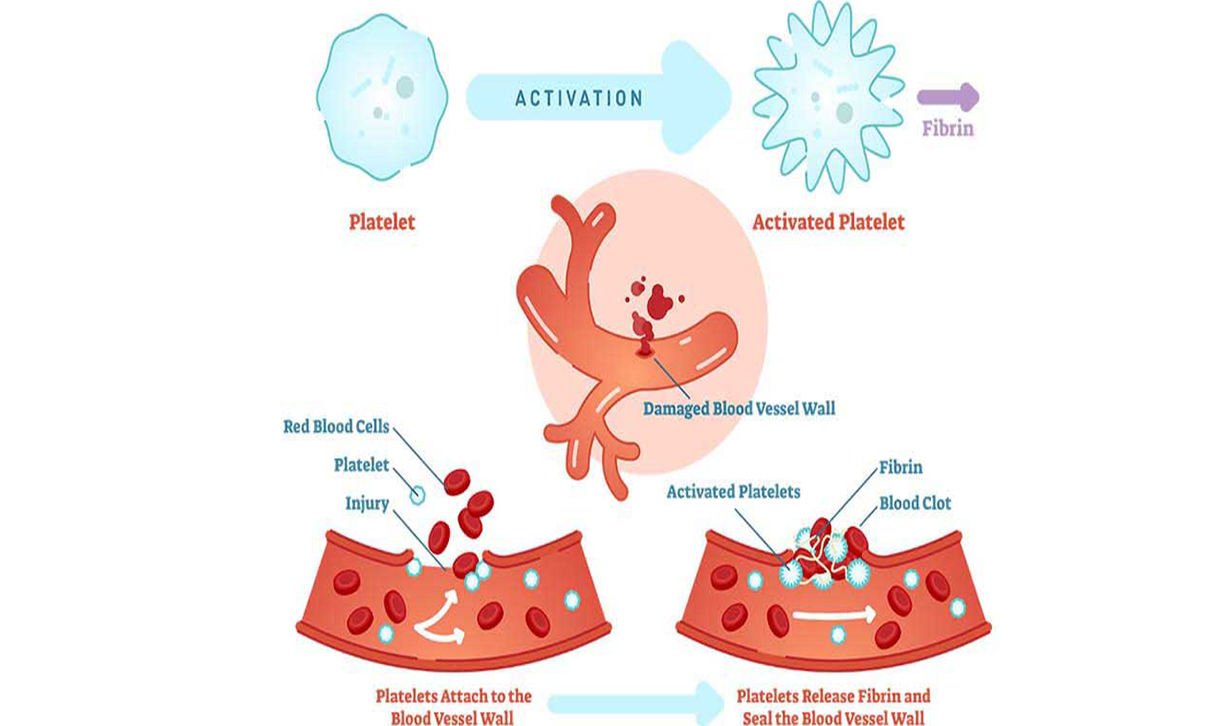PLATELET DISORDERS
There are many types of platelet disorders. A higher-than-normal platelet count is called thrombocytosis or thrombocythemia. Having too many platelets can cause blood clots to form in your blood vessels. This can block blood flow through your body. A lower-than-normal platelet count is called thrombocytopenia.
The most common types are:
- Bernard Soulier disease
- Glanzmann's thrombasthenia
- Hermansky Pudlak syndrome
- Jacobsen syndrome
- Lowe syndrome
- Platelet release and storage pool defects
- Thrombocytopenia with absent radius (TAR) syndrome.
- Thrombotic thrombocytopenic purpura (TTP)
Thrombocytopenia signs and symptoms may include:
- Easy or excessive bruising (purpura)
- Superficial bleeding into the skin that appears as a rash of pinpoint-sized reddish-purple spots (petechiae), usually on the lower legs
- Prolonged bleeding from cuts
- Bleeding from your gums or nose
- Blood in urine or stools
- Unusually heavy menstrual flows
- Fatigue.
- Enlarged spleen
Treatment
Thrombocytopenia can last for days or years. People with mild thrombocytopenia might not need treatment. For people who do need treatment for thrombocytopenia, treatment depends on its cause and how severe it is
If your thrombocytopenia is caused by an underlying condition or a medication, addressing that cause might cure it. For example, if you have heparin-induced thrombocytopenia, your doctor can prescribe a different blood-thinning drug.
Other treatments might involve
Blood or platelet transfusions If your platelet level becomes too low, your doctor can replace lost blood with transfusions of packed red blood cells or platelets
Medications If your condition is related to an immune system problem, your doctor might prescribe drugs to boost your platelet count. The first-choice drug might be a corticosteroid. If that doesn't work, stronger medications can be used to suppress your immune system
Surgery If other treatments don't help, your doctor might recommend surgery to remove your spleen (splenectomy).
Plasma exchange Thrombotic thrombocytopenic purpura can result in a medical emergency requiring plasma exchange.
